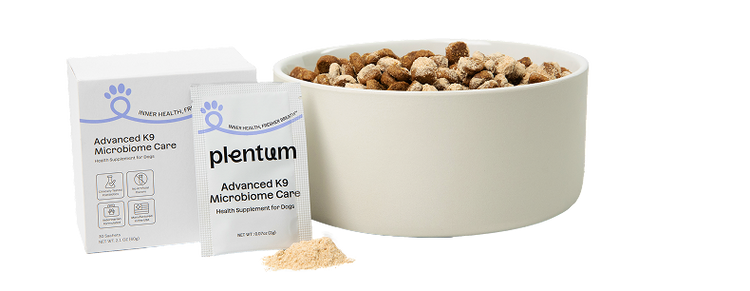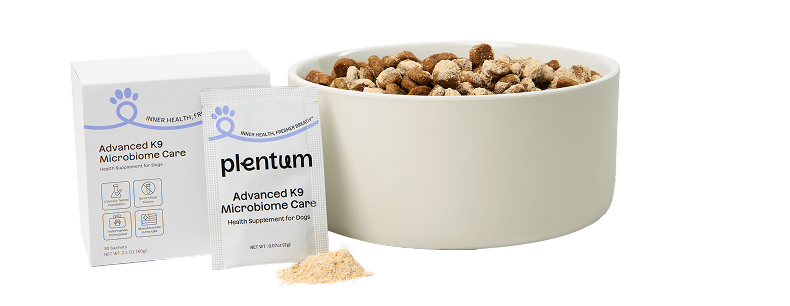The modern dog ownership experience includes a wide range of nutritional options starting with premium kibble extending through raw diets together with a continuously expanding collection of supplements. Numerous dog owners doubt whether commercial dog food provides all the necessary nutrients their pets require. People need to understand the intricate relationship between commercial diets and raw feeding and targeted supplementation to make sound decisions about canine health.
The Importance of Balanced Nutrition for Dogs
All aspects of canine health rely on correct nutrition because it provides the base for immune system operation and coat quality. The Association of American Feed Control Officials (AAFCO) guidelines state that dogs need six fundamental nutrients which include protein and fats and carbohydrates and vitamins and minerals and water. The protein requirements of dogs differ substantially across life stages because puppies need at least 22.5% protein in their dry matter but adults need only 18%.1 2
Dogs obtain essential amino acids from their diet since their bodies do not produce arginine lysine and methionine. Dogs need essential fatty acids like omega-3s from their food because they lack natural fatty acid production capabilities. Long-term health outcomes depend heavily on nutritional choices because dogs must obtain necessary nutrients through external sources.2 3 4
Raw Dog Food vs. Commercial Dog Food
Benefits of Raw Dog Food
Proponents of raw diets claim several potential benefits for dogs including better coat shine and higher energy levels as well as better dental health. In 1993 veterinarian Ian Billinghurst launched the BARF (Bones and Raw Food) diet to provide dogs with evolutionary nutrition patterns from pre-domestication times.5
The average raw canine diet consists of muscle meat with whole bones or ground bones and organ meats together with raw eggs and vegetables and minimal dairy components. The raw diet method delivers better nutritional value than conventional processed commercial pet foods according to its advocates.5
Nutrient Density in Raw Diets
Raw meat-based diets contain elevated fat levels which enhance their energy density. The characteristic of high fat content in raw diets can lead to obesity problems unless owners take control of serving portions. The high protein levels in raw diets help dogs who are active or need specific metabolic management.6
Risks Associated with Raw Diets
The potential advantages of raw feeding do not outweigh the serious health risks it poses to both pets and their owners. Research has identified dangerous pathogen contamination issues in raw meat because it commonly tests positive for Salmonella, Campylobacter, E. coli, and Yersinia. A 2023 Salmonella outbreak in humans occurred due to direct contact with raw dog food.7 6
The second major concern arises from nutritional imbalances. Studies show that homemade dog diets fall short in essential nutrients in 95% of all cases. The improper calcium-to-phosphorus ratios found in raw diets can lead to skeletal issues during puppy growth. The consumption of whole bones leads to dangerous choking situations and creates possible internal injuries from punctures.8 6 5
Commercial Dog Food: Pros and Cons
The United States regulates commercial pet food as one of its most closely monitored food items under FDA supervision together with state-level standards. The Food Safety Modernization Act (FSMA) requires pet food manufacturers to follow both current good manufacturing practices and hazard analysis procedures.9
Nutritional Guidelines and Regulation
AAFCO defines nutritional standards which ensure commercial pet foods fulfill the basic dietary requirements of dogs at different stages of life. Products which claim to be "complete and balanced" must either fulfill AAFCO nutrient profiles through their formulation or demonstrate nutritional adequacy through feeding trials.10 1
All food products must pass state inspections before sale because regulators verify both product registration and label approval while examining guaranteed analysis statements and ingredient listings and nutritional adequacy claims. The established regulatory system gives consumers protection which homemade and raw diets fail to provide.9
Ingredients to Look for in Dog Food
The label of high-quality commercial pet food must specify particular protein sources including chicken, salmon, and beef instead of using general terms such as "meat meal." Select dog foods that show AAFCO nutritional adequacy statements which match your pet's current life phase. You should exclude dog foods that contain too many fillers along with artificial preservatives and ingredients that make your dog react negatively.11 1 10
The Role of Dog Food Supplements
Types of Dog Food Supplements
The dog supplement market consists mainly of multivitamins and joint protectants made from glucosamine and chondroitin and omega-3 fatty acids. The nutritional supplements address particular health issues that standard dog food cannot fully provide.12
Vitamins for Dogs
The dietary needs of dogs consist of both fat-soluble vitamins A, D, E, K and water-soluble B-complex vitamins and vitamin C. The body requires B-complex vitamins for nervous system health and energy metabolism and Vitamin A functions as an immune and vision supporter. The antioxidant properties of Vitamin E help protect cells and strengthen both immune responses and cellular health.13
The symptoms of vitamin deficiency include dull coat appearance and excessive shedding as well as low energy levels and repeated digestive problems. The harmful effects of vitamin D toxicity require veterinary advice for safe supplementation.14 15 12
Omega Fatty Acids for Dogs
The omega-3 fatty acids EPA and DHA from fish oil have anti-inflammatory properties which help dogs with joint health issues and skin and coat conditions and brain function. Studies show that supplementing dogs with 70 mg of EPA + DHA per kilogram of body weight leads to improved omega-3 index scores and decreased pain measurements especially in smaller breeds.3 16 17
The standard commercial diets contain enough omega-6 fatty acids through plant oils and poultry fat. The main goal consists of maintaining proper omega-3 to omega-6 ratios rather than elevating total fatty acid consumption.4 18
Other Popular Dog Health Supplements
The combination of glucosamine with chondroitin and MSM in joint supplements helps protect against arthritis in large breeds and senior dogs. Probiotics serve to promote digestive health while antioxidants function as protective agents against cellular deterioration that occurs with aging.19 20 12
When to Consider Supplements
Signs Your Dog May Need Additional Nutrients
Different symptoms of nutritional deficiencies include coat dullness and brittleness together with excessive shedding and low energy levels and recurrent digestive problems and slow wound healing. The symptoms of skin problems like itchy or dry skin may result from essential fatty acid deficiencies.15 21 22 14
The presence of appetite changes and unexplained weight loss together with behavioral issues such as non-food item chewing indicates possible nutritional deficiencies. The symptoms may point to medical problems that need veterinary diagnosis.21 15
Consultation with a Veterinarian
All dog owners need to seek professional advice before supplementing their pets since each animal has specific nutritional requirements that depend on their age breed and activity level and health condition. Veterinary nutritionists analyze complete diets to establish customized eating strategies for pets.23 24 25 12
Special dietary management for dogs suffering from diabetes or kidney disease or food allergies should only be conducted by qualified professionals. All dogs require professional evaluation of their dietary needs to confirm their current food meets all nutritional requirements.24 23
Comparing Diet and Supplements
Does a Well-Balanced Diet Require Supplements for Nutrition?
Dogs that eat AAFCO-certified commercial foods appropriate for their life stage get enough nutrients from their food without the need for supplements. These tested products fulfill the nutritional requirements of healthy dogs according to established standards.12 10
However, individual circumstances may create additional needs. The dietary needs of senior dogs demand joint supplements as a standard practice while skin allergy sufferers need omega-3 supplements which commercial dog foods do not provide. The energy demands of working dogs and dogs with high activity levels require additional calorie intake together with particular nutrients for proper energy expenditure.20 12
Nutrient Absorption Considerations
The bioavailability of nutrients shows great variation between different nutritional sources and delivery methods. Commercial dog foods achieve protein digestibility of 80% or better based on their apparent digestion rates. The higher concentration and easier absorption rates of nutrients in supplements do not guarantee better health results.26
The absorption efficiency of nutrients differs between dogs because of natural factors such as age together with digestive health status and genetic makeup. Targeted supplementation becomes necessary for inflammatory bowel disease patients since their condition weakens nutrient absorption no matter the dietary quality.15 23
Individual Needs Based on Breed and Age
Large breed puppies require exact control of calcium and phosphorus levels in their diet because excessive calcium at more than 1.8% dry matter content leads to developmental orthopedic diseases. The antioxidants along with joint support supplements help senior dogs adapt to aging changes in their bodies.26 20 12
Breed-specific predispositions also influence nutritional needs. Early joint supplementation benefits breeds with hip dysplasia whereas breeds with skin sensitivity require omega-3 fatty acids or specific dietary formulations.20 12
The Balance of Diet and Supplementation
The best way to proceed with dog nutrition involves combining commercial or homemade diets that meet quality standards with specific supplements that fulfill individual requirements. This method recognizes complete and balanced diets serve as the base while supplements fulfill needs for health problems or life stage requirements.
Quality control becomes paramount when selecting supplements. The NASC (National Animal Supplement Council) seal appears on products to show compliance with quality and safety requirements. Start supplements at a low dose and watch your dog for signs of adverse effects.12
Conclusion
Supplements and diet do not need to be mutually exclusive since each dog requires its own balanced approach. High-quality commercial foods that meet AAFCO standards create excellent nutritional foundations for healthy dogs. The addition of targeted supplements helps address particular requirements which stem from age-related factors or breed characteristics or physical activity levels or health conditions.
You should resist the urge to take excessive supplements even when marketing claims or personal stories suggest doing so. Your veterinarian should help determine your dog's present nutritional state before identifying actual supplementation requirements. The combination of regular checks and dietary modifications with supplement adjustments will provide your dog with their optimal nutritional needs from birth to death.
Nutrition stands as one element which forms part of a dog's complete well-being. Your dog's health depends on veterinary care alongside proper exercise along with mental stimulation and a nurturing environment. Science-based decisions regarding diet and supplements help you build a strong foundation for your dog's future health and happiness.











